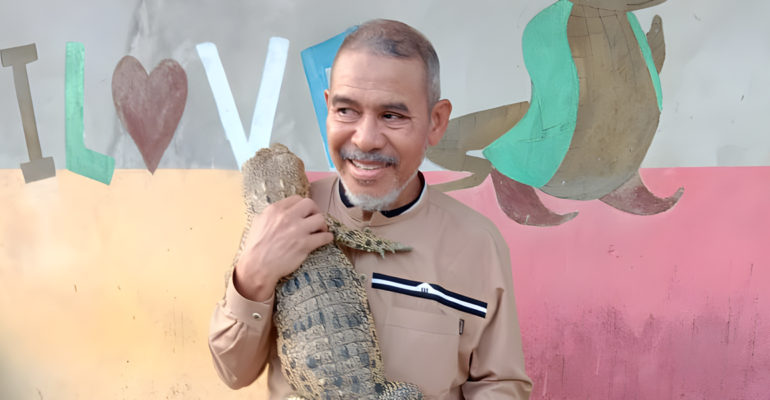Prof Burhanuddin Masy’ud Explains the Importance of Exitu Conservation for Wildlife Sustainability

Indonesia is a megabiodiversity country. Indonesia’s biological wealth is the third largest in the world, including its wildlife diversity. According to IPB University expert, Prof Burhanuddin Masy’ud, this condition must be preserved, existed and developed for sustainable use.
In an online Pre Scientific Oration Press Conference for Professor of IPB University, Thursday (21/9), Prof Burhan reviewed the importance of exitu conservation and captive breeding as a strategy for preserving and utilising wildlife sustainably.
For example, some bird species that have high economic value, such as white starlings, king cockatoos, are often targeted for hunting in the wild. This will potentially threaten the sustainability of the species in the wild.
“To ensure sustainability, in addition to in situ conservation in natural habitats, for species with low population growth rates and high habitat destruction, the method used is through exitu conservation and captive breeding efforts outside their habitat,” said Prof Burhan.
In addition, he also explained that the approach to increase animal reproductive activity in exitu can be done by utilising local wisdom-based aphrodisiac plants to stimulate animal reproductive activity. Aphrodisiacs are foods or herbs that are believed to increase sexual arousal.
“The results of our experiments with the team prove that the administration of sanrego (Lunasia amara) leaf powder capsules and pasak bumi (Eurycoma longifolia) roots can stimulate sexual libido and mating activity in male Timor deer. In addition, the administration of tabat barito (Ficus deltoidea Jack) leaf powder capsules can stimulate estrus (lust) and mating in female timor deer,” he explained.
On the other hand, continued Prof Burhan, the development of exitu conservation and wildlife breeding as part of the biodiversity conservation strategy must pay attention to the principles of conservation philosophy and ethics that have become the commitment of the global community. Another important thing is the principle of animal welfare and ethics, commonly known as the ‘five rights of animal freedom’.
“The success of exitu and captive breeding has also been proven to contribute positively to the change in protection status of five songbird species to unprotected species. Based on Minister of Environment and Forestry Regulation No. 106 of 2016, the five birds include the swamp cucak rawa, jungle catcalli/murai batu, suren starling, small anis-bentet, and sangihe anis-bentet,” he said.
In an aside, he said that the existence of a number of conservation organisations and wildlife breeding units, especially in Indonesia, has also made a significant contribution, in terms of ecological, socio-economic and cultural aspects. (Rz) (IAAS/RUM)



